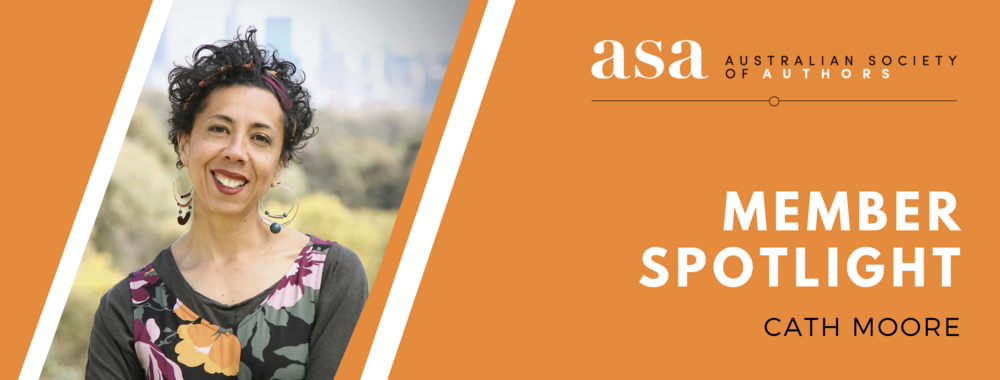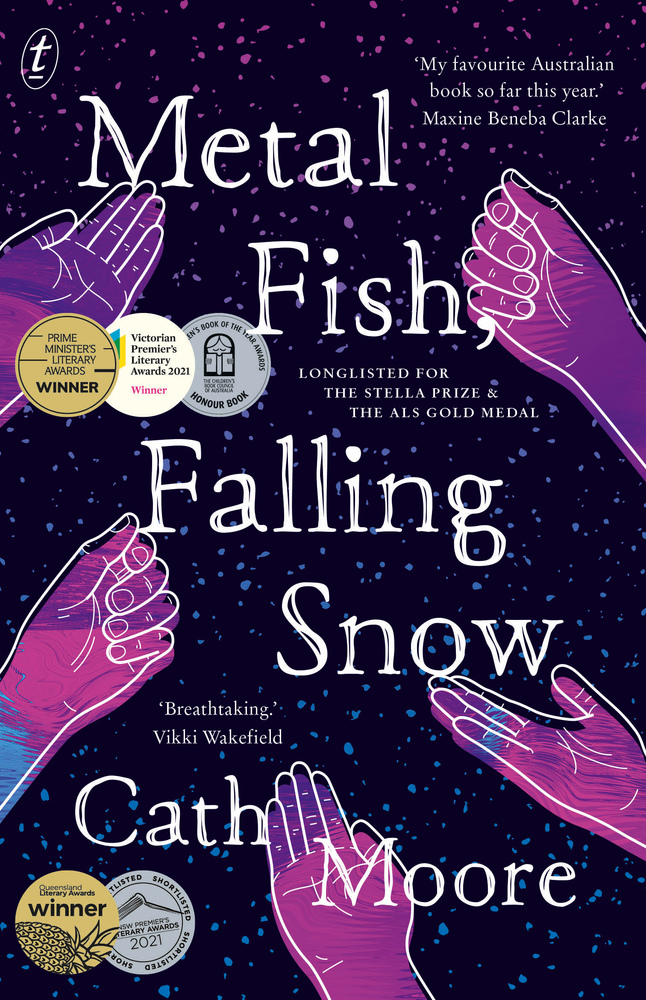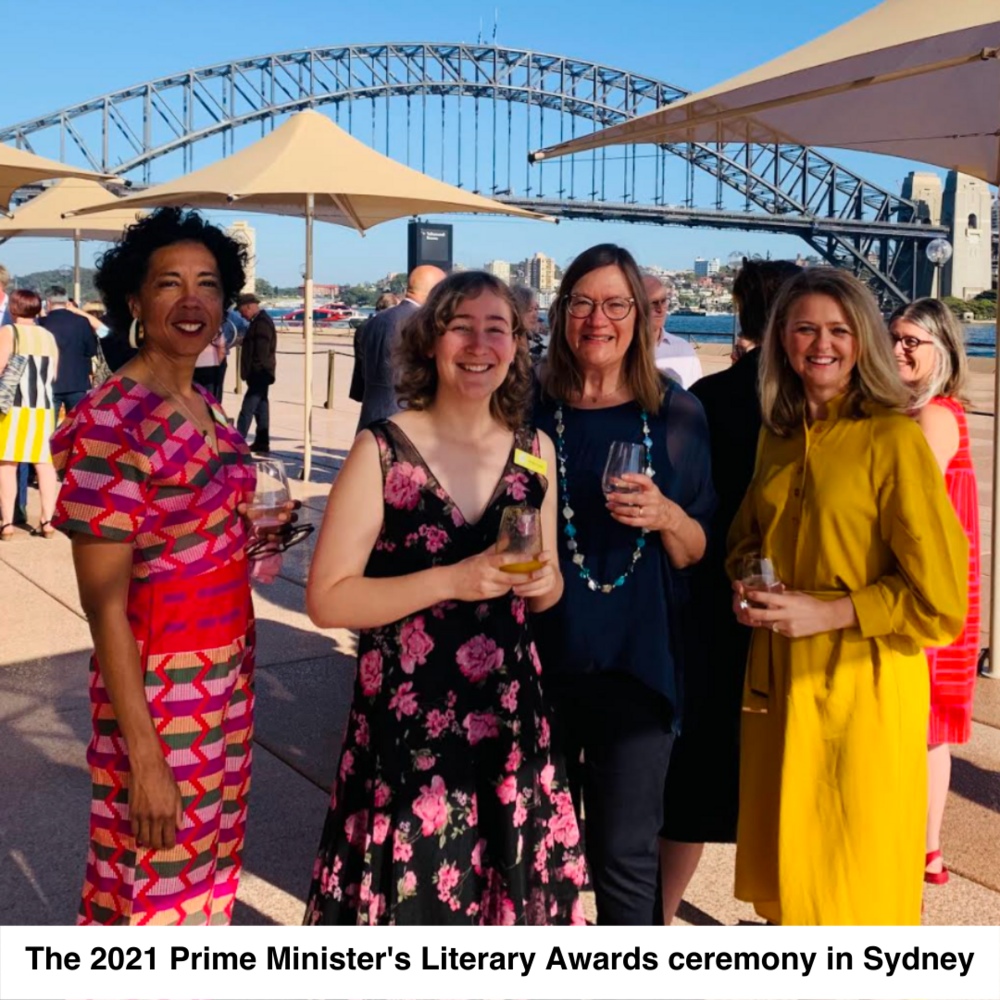22.12.21
Our January Member Spotlight features Cath Moore, who was recently announced as the winner of the 2021 Prime Minister's Literary Award for Young Adult Literature for her novel Metal Fish, Falling Snow!
Of Afro-Caribbean and Anglo-Irish heritage, Cath Moore graduated from AFTRS with a Masters in screenwriting and holds a PhD in Danish screenwriting practices. An award-winning screenwriter Cath has also worked in the screen industry as a story consultant. She has written for print media including The Age, The Huffington Post and SBS Life. Cath was a contributing author to the anthology Growing Up African in Australia and her first novel Metal Fish Falling Snow won the 2021 Victorian and Queensland Premier’s and Prime Minister’s Award for Young Adult Literature.

What inspired you to begin writing?
I spent a lot of time in libraries growing up and my love of reading certainly inspired my passion for writing. My mother was an academic, so these interwoven practices were normalised pretty early in my life. In fact, at the age of 4, I remember mum plonking me in front of a manual typewriter in her office and telling me to write a story. I bashed on random keys for a while, pulled the paper out and told mum to read it to me. She made up this wonderfully creative story about a bear and I still remember thinking how cool it was to hear a story I’d somehow written. I think for many people writing is a safe space in which to interrogate ideas too dangerous or confronting to yet speak. This was certainly the case when I started to unpack my mixed heritage and what it meant to grow up in a white country still grappling with its own sense of identity.
 What does it mean to you to have won the 2021 Prime Minister's Literary Award for Young Adult Literature for Metal Fish, Falling Snow?
What does it mean to you to have won the 2021 Prime Minister's Literary Award for Young Adult Literature for Metal Fish, Falling Snow?
After years of struggling to find traction as a writer in the Australian screen sector, it’s quite overwhelming and a little surreal to have found such incredible support and affirmation. It’s an enormous privilege to find community in this way and participate in conversations that help to promote literature as a critical part of Australia’s creative landscape. I’m grateful that at both a state and federal level, there is recognition that stories for children and young adults play a vital role in shaping and inspiring their own imaginings. It was also a shared celebration with the other Young Adult shortlisted authors, and was wonderful to spend time with Rawah Arja, Georgina Young and Jane Godwin.
What do you know now that you wish you'd known at the beginning of your writing journey?
 That finding faith is one thing but holding onto it is hard. I wish that I’d spent less time worrying about what other people thought or adhering to prescriptive notions about what it meant to be a writer. I wish I had spent less time trying to follow paths that weren’t mine to follow, and more time dedicated to honouring my own viewpoint and histories. I wish I’d asked more questions about the lack of diversity in the publishing industry and known sooner that I could be part of the systemic change slowly taking hold now. I wish that I had known that it only takes one person to connect with and shepherd your work into being, and that finding an incredible editor like Jane Pearson and publishing team like Text would put all the knockbacks into perspective.
That finding faith is one thing but holding onto it is hard. I wish that I’d spent less time worrying about what other people thought or adhering to prescriptive notions about what it meant to be a writer. I wish I had spent less time trying to follow paths that weren’t mine to follow, and more time dedicated to honouring my own viewpoint and histories. I wish I’d asked more questions about the lack of diversity in the publishing industry and known sooner that I could be part of the systemic change slowly taking hold now. I wish that I had known that it only takes one person to connect with and shepherd your work into being, and that finding an incredible editor like Jane Pearson and publishing team like Text would put all the knockbacks into perspective.
Which Australian authors or illustrators have been influential for your writing practice and career?
There have been authors who have been very good travelling companions at various stages throughout my life. As a small child I was obsessed with Dick Roughsey’s The Rainbow Serpent and still have my original copy. As a kid I used to love anything by Morris Gleitzman and John Marsden. I also loved Ruth Park’s Playing Beatie Bow. As an adult, I voraciously read Peter Carey (my favourite is The True History of the Kelly Gang) and Richard Flanagan (Gould’s Book of Fish). You will find anything written by Kate Grenville, Alexis Wright, Melissa Lucashenko, Louis Nowra, Helen Garner and Christos Tsiolkas on my bookshelf. Most influential however has been the work of Maxine Beneba Clarke. Seeing her talk about writing made me realise that perhaps I too could speak to my cultural heritage both implicitly and explicitly and offer another perspective on being Australian through my words. I have come full circle and read Maxine’s children’s books to my son, proudly showing him that mum is one of many Australian authors of colour.
Find out more about Cath Moore here: https://www.cathmoorewrites.org/
Keep up-to-date with ASA advocacy, support and advice
with our fortnightly newsletter.